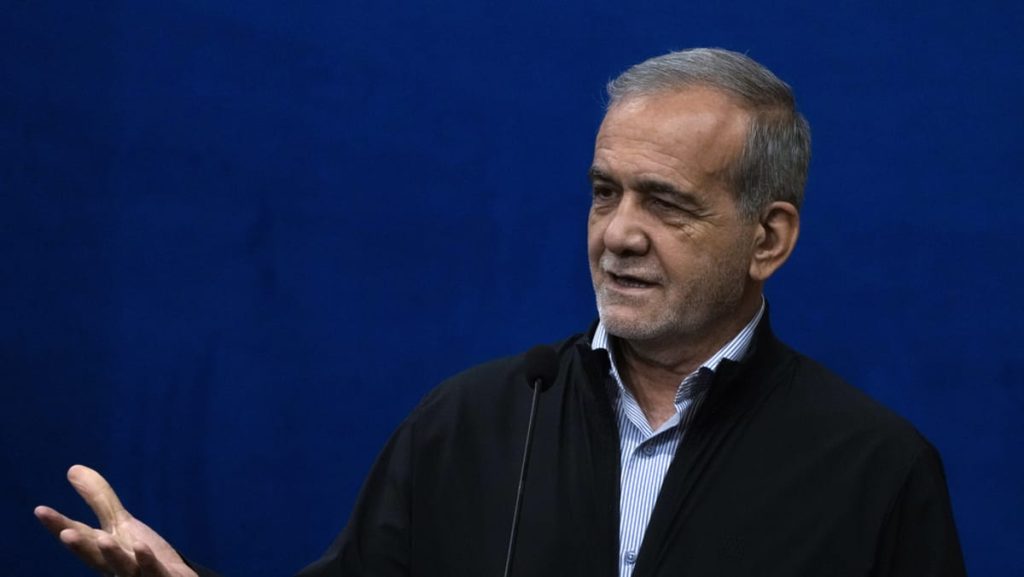Iranian President Masoud Pezeshkian promised to prevent morality police from harassing women, following the death of Mahsa Amini in custody two years ago. Amini, a 22-year-old Iranian Kurd, was arrested for violating dress codes for women in Iran. Her death led to widespread protests and violence in the country, with many people being killed and arrested. Pezeshkian, a reformist president who took office in July, pledged to oppose police enforcing mandatory hijab rules and to ease internet restrictions in Iran.
Pezeshkian’s comments come as Iran commemorates the anniversary of Amini’s death, which sparked outrage and unrest in the country. The Iranian president has expressed a willingness to challenge the strict control of internet use in Iran, particularly on social media platforms. The government under Pezeshkian is working to relax restrictions online and create more space for freedom of expression, in contrast to the harsh measures implemented in response to previous protests.
The death of Mahsa Amini led to months of protests in Iran, with demonstrators expressing anger at the treatment of women and the strict enforcement of dress codes by morality police. Amini’s case brought attention to the issue of women’s rights in Iran and the oppressive control over their clothing choices. Pezeshkian’s promise to address these concerns demonstrates a shift in policy from the previous ultraconservative government, indicating a desire for more liberal and inclusive approaches under his leadership.
Pezeshkian’s commitment to preventing harassment of women by morality police reflects a broader effort to promote gender equality and respect for women’s rights in Iran. By denouncing the behavior of law enforcement agencies and emphasizing the need to protect women from unnecessary intrusion and repression, the president is signaling a departure from the oppressive practices of the past. The government’s focus on easing social media restrictions and promoting internet freedom further indicates a desire to create a more open and transparent society.
The new government in Iran, led by President Masoud Pezeshkian, is seeking to address the concerns raised by Mahsa Amini’s death and the subsequent protests. By promising to limit the authority of morality police and relax internet restrictions, the president is signaling a commitment to civil liberties and individual rights. As Iran navigates a period of transition and change, Pezeshkian’s leadership offers hope for a more open and inclusive society that respects the rights and dignity of all its citizens, particularly women.
In conclusion, President Masoud Pezeshkian’s pledge to protect women from harassment by morality police and promote internet freedom marks a significant shift in policy in Iran. By addressing the legacy of Mahsa Amini’s death and the protests that followed, the government is signaling a commitment to respect human rights and promote gender equality. As Iran moves towards a more inclusive and progressive society, Pezeshkian’s leadership offers hope for positive change and greater freedoms for all citizens.













